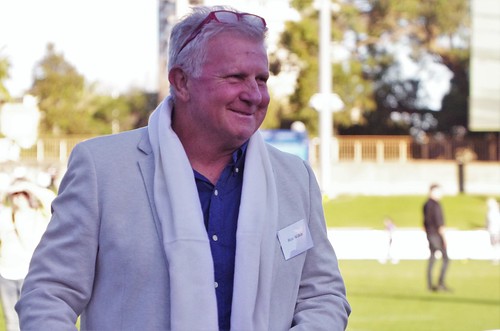In our extreme societal wealth imbalance, we could be back in the Middle Ages: M.J. Wilkie
Wilkie #Wilkie

NEW YORK CITY — How striking are the parallels between current economic circumstances and those of the Middle Ages, lately exacerbated by the coronavirus pandemic.
In medieval Europe, nobility and clergy held virtually all of the assets. The well-being of everyone else depended on the largesse of kings and lords, and could be affected only slightly by the efforts of the individual laboring in the field, castle, or manor. Most people lived like the peasants they were, dependent on whatever the charitable or uncharitable lord allocated to them. Plagues were not infrequent, the Black Death being only one of many that swept through Europe.
Reading about donations made by the wealthy (in general and for specific causes) puts me in mind of medieval times. While we are not serfs, and we have social programs that keep many above the poverty level, it is no less true that a thin layer of very wealthy people has millions, indeed billions, of dollars to allocate at will. The well-being of the rest of us is derived in large measure from their contributions. Salaries of many citizens are not sufficient to maintain a decent living, and examples abound. As was true in the Middle Ages, during an epidemic, there is a stark contrast between conditions endured by “essential workers” and havens available to the wealthy.
Differentiating us from medieval times, however, are “mediating” factors: nonprofit organizations and the fund-development professional. These good people help channel funds to very good causes, having ascertained the desires and interests of patrons of the arts, education, and social services. But the decision still belongs to the wealthy.
We should not ignore the cost to society of this structure. A nonprofit organization, a 501(c)3, pays salaries and maintains offices, and these expenses occur long before money reaches the intended recipients. A well-run organization will minimize these costs, but they are there, nonetheless.
We might ask how much charity would be unnecessary if revenue generated by businesses were distributed a different way. In her 1951 book, “Waiting for God,” French philosopher Simone Weil pointed out that we have invented the distinction between charity and justice. I interpret this to mean that, in a just society, there is no need for charity. While it is probably the case that some will always need charity, a society where a few have so much, and many have so little, is indeed medieval.
Is there nothing strange about the fact that some individuals have millions to give away? After centuries of an evolving middle class, we have returned to the medieval state, not a healthy circumstance. The contrast is astounding in this country, and the disparity is even greater in some other countries.

M.J. Wilkie in a self-portrait.
I am not suggesting that it is wrong to amass wealth, nor do I think that the wealthy are heartless souls (although some may be). The issue is distribution of wealth and services, and the enormous gap between top and bottom. Some critics will blame capitalism for our ills, but this system developed only with the Renaissance. More importantly, systems do not do anything, and blaming the system deflects responsibility from those who are responsible: the people who administer it, and those whose interests it serves.
We often apply “medieval” to indicate disapproval, to render a judgment of backwardness, an absence of progress. We should turn that lens on today’s world, for if the social structure of the Middle Ages was unhealthy, so is our own. It will take either a revolution or an evolution of a certain kind to make this a just society.
M.J. Wilkie is an independent contractor and former teacher who writes occasional opinion articles. This guest column was written in New York City; she now lives in Paris.
Have something to say about this topic?
* Send a letter to the editor, which will be considered for print publication.
* Email general questions about our editorial board or comments or corrections on this opinion column to Elizabeth Sullivan, director of opinion, at esullivan@cleveland.com